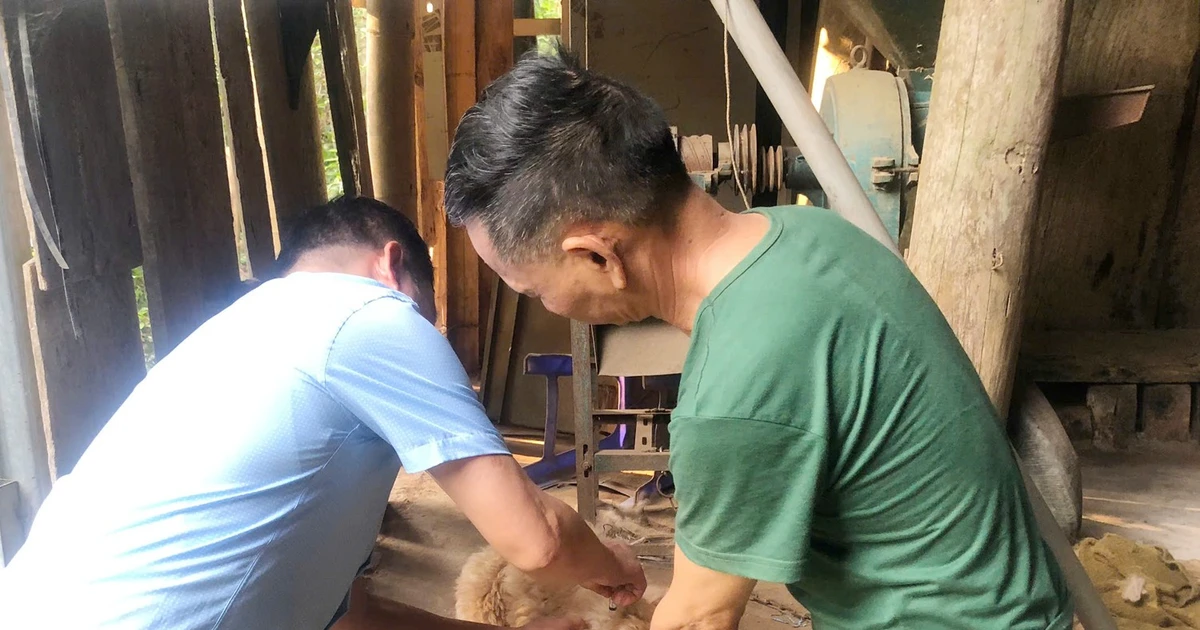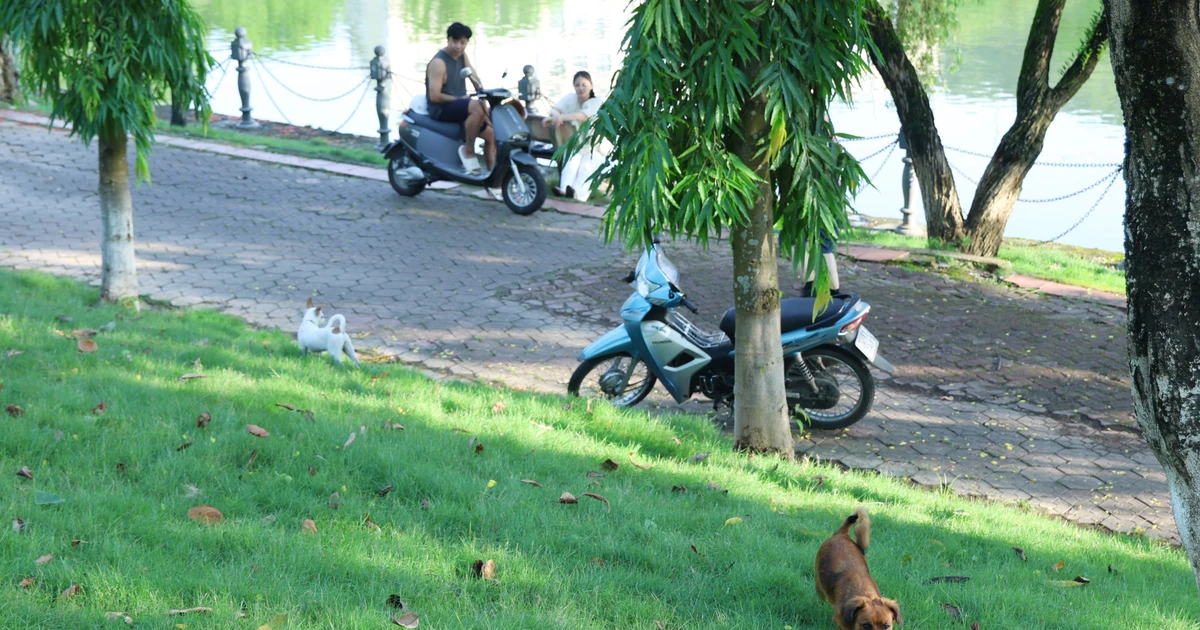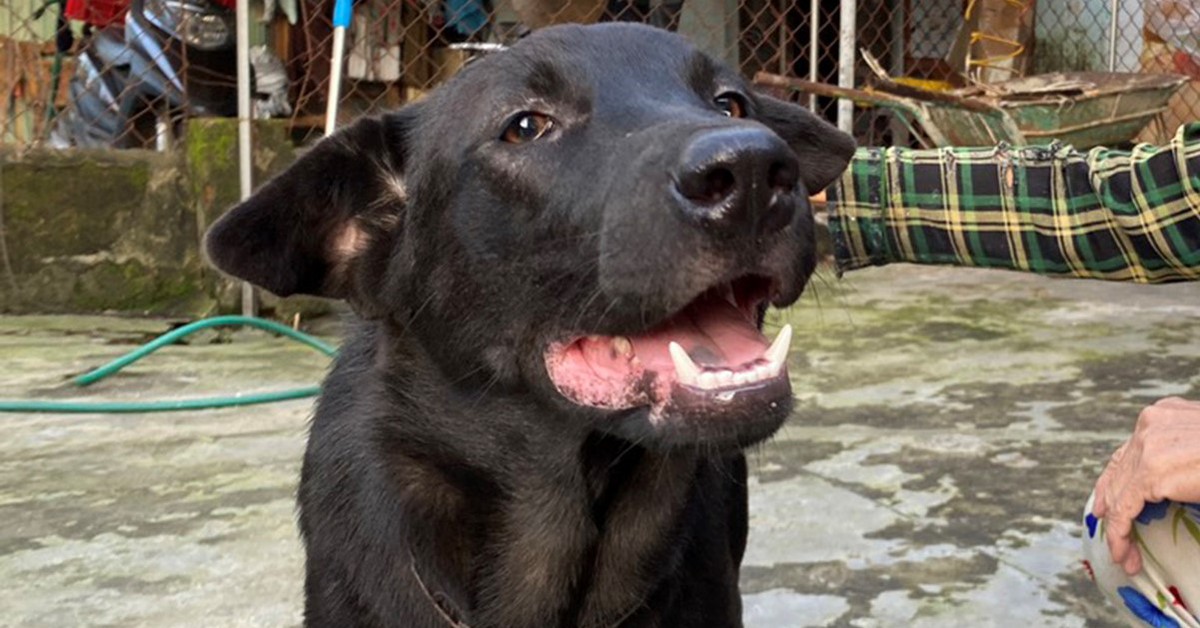During the Lunar New Year, the number of people bitten or scratched by dogs and cats tends to increase. This creates a risk of rabies transmission if not vaccinated in time.
During the Lunar New Year, the number of people bitten or scratched by dogs and cats tends to increase. This creates a risk of rabies transmission if not vaccinated in time.
Medical experts recommend that vaccination is necessary, especially for high-risk groups, to proactively prevent rabies during Tet.
In recent years, Tet often records many cases of people being bitten by dogs and needing rabies vaccination. This increase is mainly due to the high demand for travel and tourism during Tet, while the management of dogs and cats is lax, not muzzled, and allowed to roam freely.
[embed]https://www.youtube.com/watch?v=pnngqGmUFkM[/embed]
In hospitals, the number of people bitten by dogs and cats during Tet 2024 also increased sharply. For example, the Ho Chi Minh City Hospital for Tropical Diseases received more than 3,600 people bitten by dogs and cats and had to be vaccinated.
Similarly, the National Children's Hospital also received nearly 90 cases of animal bites. During Tet 2023, the country recorded more than 50,000 cases of dog bites and cat scratches requiring rabies vaccination.
The rabies virus enters the body through a bite or scratch and travels along the nerves to the brain at a rate of 12-24 mm per day. The incubation period can last from less than 10 days to several months or even years, depending on the location of the wound and the amount of virus entering the body.
Therefore, when bitten or scratched by warm-blooded mammals such as dogs or cats, people need to get vaccinated as soon as possible. Especially for wounds near the central nervous system such as the head, face, neck, the incubation period is short, the patient needs to be injected with rabies antiserum.
However, during Tet, many vaccination facilities and clinics are temporarily closed, making it difficult for people to access vaccination services immediately when an incident occurs. The sudden increase in the number of people being vaccinated can lead to a shortage of vaccines.
According to doctors, dog and cat owners need to be fully vaccinated and have booster shots as recommended by the veterinary industry. When visiting for Tet, people should also be careful to avoid contact with aggressive dogs and cats, and parents should supervise young children when playing with animals, to avoid letting children pull their tails or provoke them.
If bitten or scratched by a dog or cat, people should wash the wound immediately under running water and soap for about 15 minutes, then disinfect it with 45-70 degree alcohol or iodine alcohol. After that, go to a medical facility for advice and timely rabies vaccination. Do not self-treat with folk methods.
The usual rabies vaccination schedule consists of 5 doses over a period of one month (0-3-7-14-28). However, vaccinations can be stopped after 10 days depending on the extent of the injury and the condition of the animal. In addition, people can get vaccinated before exposure, especially for those who have frequent contact with animals.
The prophylactic regimen consists of three doses (0-7-21 or 0-7-28) and a booster dose for high-risk individuals. If prophylactic vaccination has been given, only two additional doses are required when bitten without the need for rabies immunoglobulin, even if the wound is severe.
Rabies is a dangerous infectious disease caused by the rabies virus and transmitted from animals to humans. The mortality rate is almost 100% when symptoms appear.
Despite the availability of vaccines, vaccination rates for dogs and cats remain low in some areas, especially in countries with low pet vaccination rates such as Southeast Asia.
Mr. Nguyen Luong Tam, Deputy Director of the Department of Preventive Medicine, Ministry of Health , said that the number of deaths due to rabies remains high. One of the reasons is poor management of dog and cat herds, low rabies vaccination rate for dog and cat herds (below 50%) and widespread free-roaming of dogs and cats without muzzles. People are also subjective in getting vaccinated when bitten by dogs and cats.
To prevent rabies, the Ministry of Health recommends that people vaccinate their dogs and cats against rabies: Ensure full vaccination and booster vaccination for pets according to veterinary recommendations.
Avoid contact with animals that show unusual behavior: Especially for children, do not play with or tease dogs or cats, especially animals that show strange behavior.
When bitten by a dog or cat: Immediately wash the wound under running water for 15 minutes, then disinfect with 70% alcohol or antiseptic. Go to a medical facility to get vaccinated and receive anti-rabies serum promptly, do not self-treat with folk remedies.
Controlling animal trade: Strengthening control over the trade of dog and cat meat, strictly handling establishments trading in animals of unknown origin.
Dr. Nguyen Tuan Hai from the Safpo/Potec vaccination system recommends that getting vaccinated against rabies before exposure is the most effective way to protect your health. Early vaccination not only reduces the number of injections needed but also simplifies the treatment process later.
Although many people are concerned about the side effects of the vaccine, Dr. Hai said that the new generation of rabies vaccines produced with modern technology has minimized side effects, especially problems related to the nervous system.
Rabies remains a major threat to public health, especially in remote areas. The Ministry of Health has called on health agencies and local authorities to step up rabies prevention education, especially in areas with low vaccination rates and uncontrolled stray dog populations.
Authorities should also closely monitor rabies vaccination of pets and control the trade in wild animals and dog and cat meat. Implementing these measures will help reduce the risk of rabies spreading, protect public health and minimize future deaths.
Source: https://baodautu.vn/benh-dai-co-nguy-co-gia-tang-dip-tet-d241161.html




![[Photo] General Secretary To Lam attends the 80th anniversary of Vietnam's diplomacy](https://vstatic.vietnam.vn/vietnam/resource/IMAGE/2025/8/25/3dc715efdbf74937b6fe8072bac5cb30)









































































































Comment (0)